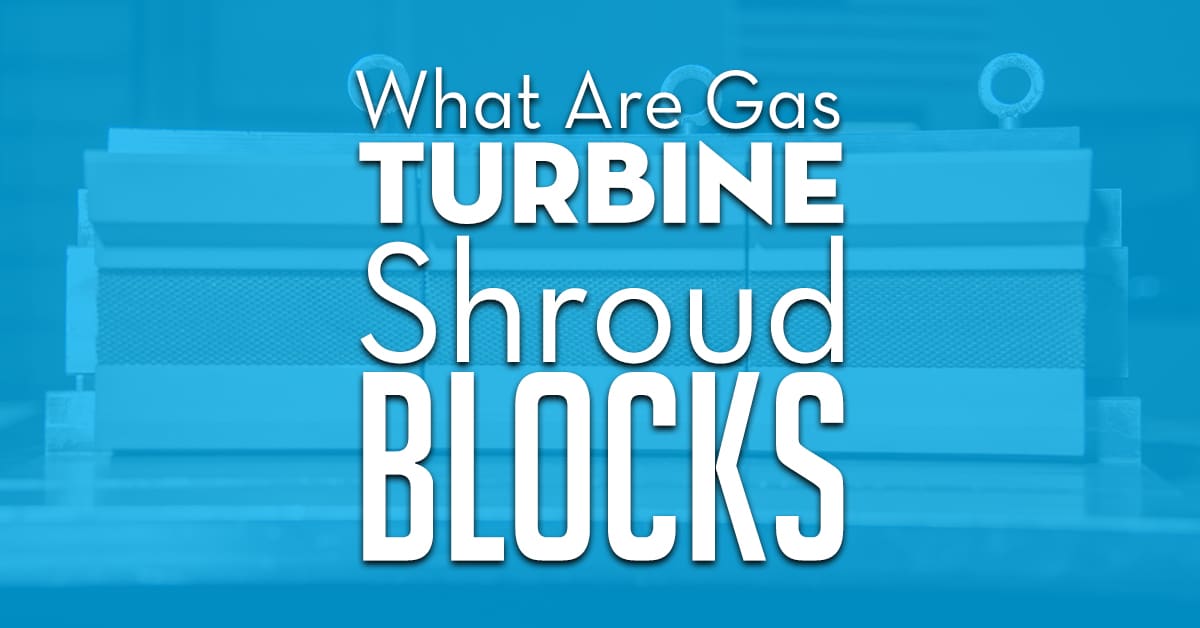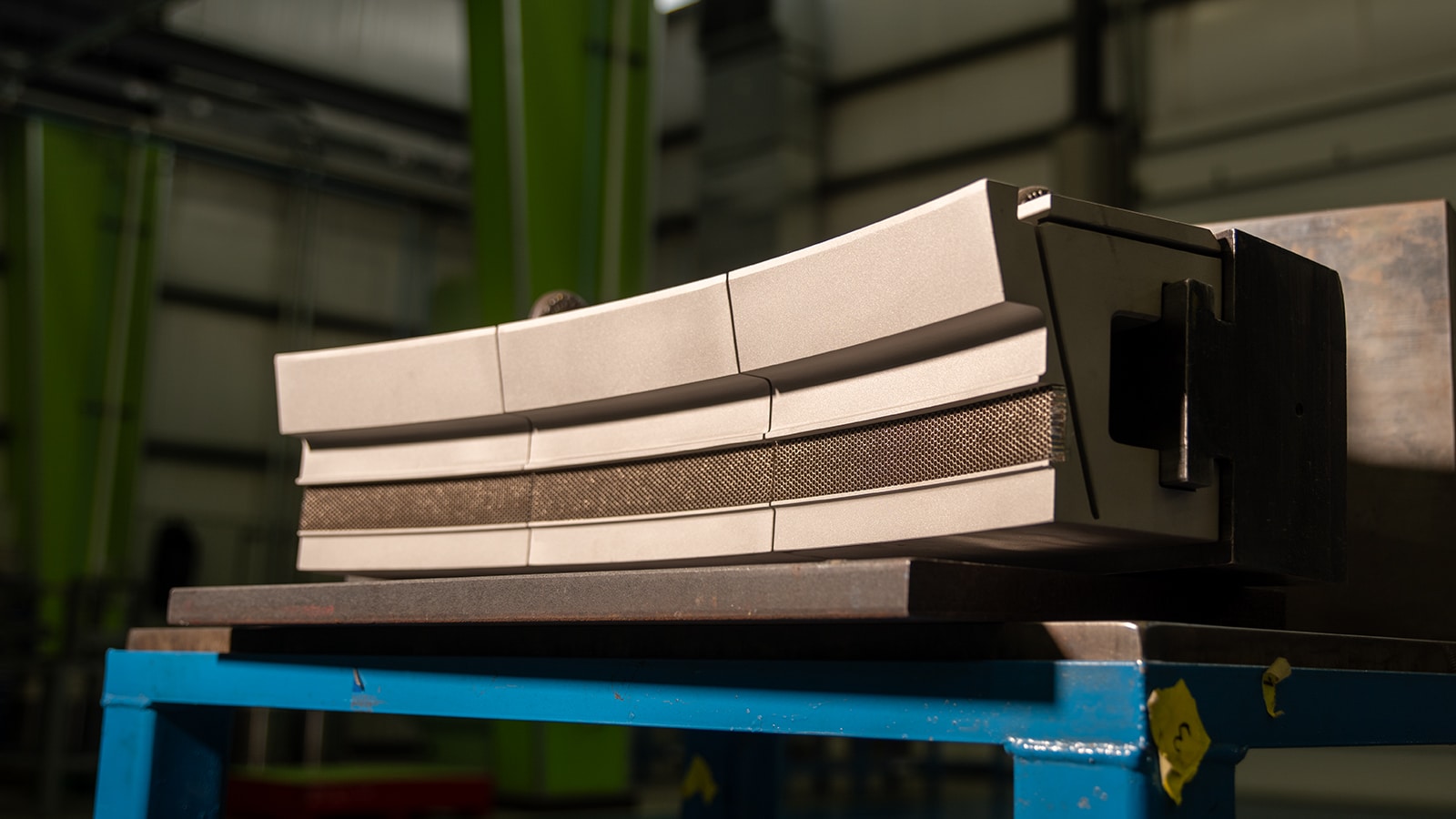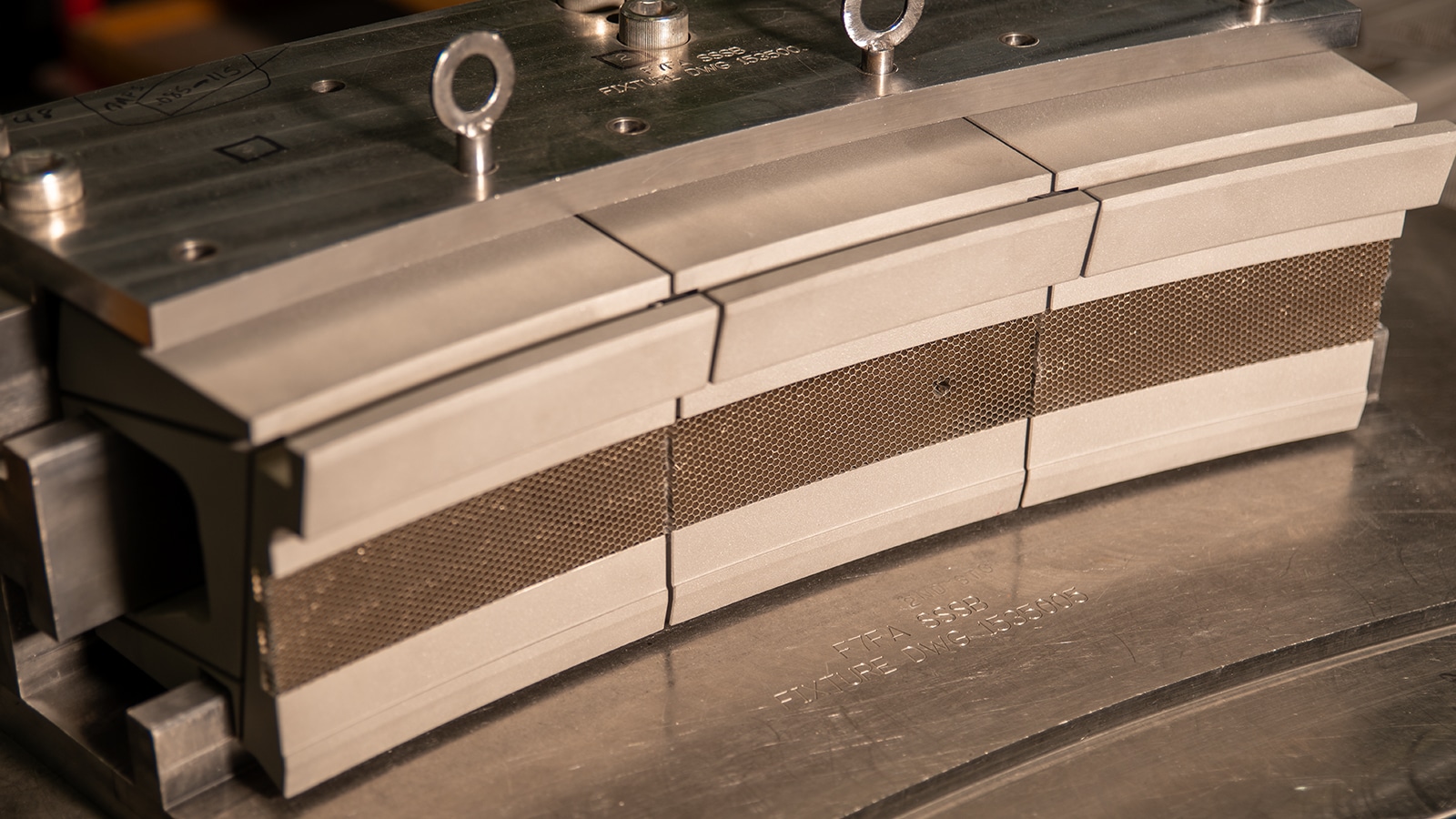Gas turbine shroud blocks are essential components in the gas turbine industry. They are built to endure extreme temperatures and pressures. Their role is to guide hot combustion gases towards the turbine blades, causing them to spin. Allied Power Group, a leading name in Gas Turbine Component Repair, offers specialized repair and maintenance services for these blocks in Houston, Texas.
The design and functionality of shroud blocks are key to the turbine’s optimal performance. Any problems with these components can significantly reduce efficiency and increase downtime. Gas turbines have three stages, each with stationary nozzles and corresponding wheel buckets. The size of the turbine buckets increases from the first to the third stage, reflecting the decrease in pressure in each stage.

Shroud blocks are vital for maintaining gas turbine efficiency. These turbines are used across various sectors, including power generation and aviation. The turbine shell ensures the axial and radial positions are maintained, which is critical for performance. It also includes cooling air passages to manage temperature. Nozzles in each stage are sealed to prevent energy loss through leakage, ensuring peak performance.
Key Takeaways
- Gas turbine shroud blocks are critical components that direct hot combustion gases onto turbine blades.
- The design and function of shroud blocks are essential for optimal turbine performance.
- Shroud blocks are designed to withstand high temperatures and pressures.
- Gas turbines consist of three stages with stationary nozzles and corresponding wheel buckets.
- Allied Power Group provides expert repair and maintenance services for shroud blocks in Houston, Texas.
- Shroud blocks play a vital role in maintaining the efficiency of gas turbines.
Understanding Gas Turbine Shroud Blocks and Their Critical Role
Gas turbine shroud blocks are essential for high-pressure turbines, most importantly in the first stage. They, along with the rotor and vane, manage gas flow and energy transfer efficiently. Their design and function are key to minimizing vibration and maximizing energy transfer.
Allied Power Group excels in repairing and maintaining these critical components. Shroud blocks, comprising the shroud block, rotor, and vane, significantly impact turbine performance. Any problems with these parts can lead to reduced efficiency and more downtime.
Basic Components and Functions
The turbine rotor assembly includes two wheel shafts and two turbine spacers. The first-stage buckets have longitudinal air passages for cooling. The second-stage buckets are cooled by spanwise air passages. Cool air flows radially outward to cool the turbine rotor.
Impact on Turbine Performance
The first stage nozzle has 18 cast segments, and the second stage has 16. The third stage also has 16 segments. The second stage nozzle partitions are cooled with compressor discharge air. High-pressure environments require smaller gas turbine blades, made from heat-resistant materials like nickel-based alloys.
Efficiency Considerations
Design and function of shroud blocks are critical for minimizing vibration and maximizing energy transfer. Blade manufacturing involves detailed root, shroud, and airfoil designs for performance and safety. Quality control includes precise measurement techniques.
| Stage | Nozzle Segments | Cooling Method |
|---|---|---|
| First Stage | 18 | Longitudinal air passages |
| Second Stage | 16 | Spanwise air passages |
| Third Stage | 16 | No internal cooling |
Design Features of Modern Shroud Blocks
Modern shroud blocks are crafted with cutting-edge materials and coating technologies. These advancements enhance their efficiency and longevity. Allied Power Group leads in designing and manufacturing these blocks, boosting turbine performance.
The design’s clearance and directness are key, ensuring hot gases efficiently hit turbine blades. Advanced coatings, like ceramic and abradable, reduce wear and enhance energy transfer. Modern shroud blocks boast several features, including:
- Advanced materials and coating technologies
- Thermal design to withstand high temperatures and pressures
- Clearance and direct design to minimize energy loss
- Integral groove to improve cooling air flow
- Radial design to determine the optimal shaft position
These attributes contribute to better turbine efficiency, lower maintenance costs, and enhanced performance. The strategic use of cooling air and stator design is vital. Higher pressure and direct cooling air enable shroud blocks to operate at elevated temperatures, leading to superior turbine efficiency.
| Design Feature | Description |
|---|---|
| Advanced Materials | Improved durability and resistance to wear and tear |
| Coating Technologies | Reduced wear and tear, improved energy transfer |
| Thermal Design | Withstands high temperatures and pressures |
| Clearance and Direct Design | Minimizes energy loss, directs hot combustion gases onto turbine blades |
Materials and Construction Technologies
Allied Power Group excels in crafting and repairing shroud blocks with cutting-edge materials and technologies. The choice of materials for shroud blocks is vital for their performance and longevity. Advanced alloys like Inconel and stainless steel are favored for their strength. Coatings, including ceramic and abradable materials, further enhance their efficiency and durability.
Utilizing sensors and precision manufacturing is key. It ensures shroud blocks meet precise specifications. This is essential when they face hot gases, combustion gases, and high pressures. The precision and adherence to specifications are critical for minimizing losses and boosting efficiency in steam turbines and other applications.
Construction technologies play a significant role, with advanced materials like ceramic and interlock boosting durability and efficiency. Airfoils are incorporated to enhance aerodynamic performance. The manufacturing processes must withstand extreme temperatures and pressures. Advanced materials and technologies allow for shroud blocks tailored to specific needs, including privacy policy and regulatory compliance.
Advanced Manufacturing Processes
Advanced manufacturing techniques, including 3D printing and CNC machining, are employed for shroud block production. These methods enable the creation of complex geometries, improving performance and efficiency. The use of advanced materials and technologies also reduces environmental impact by minimizing waste and maintenance needs.
| Material | Properties | Applications |
|---|---|---|
| Inconel | High temperature resistance, corrosion resistance | Steam turbines, gas turbines |
| Stainless Steel | High strength, corrosion resistance | Shroud blocks, airfoils |
| Ceramic | High temperature resistance, wear resistance | Coating technologies, shroud blocks |
Common Issues Affecting Shroud Block Performance
Shroud blocks are vital in gas turbines, facing numerous challenges. Wear and tear, corrosion, and thermal stress are common problems. These issues stem from harsh environments, extreme temperatures, and vibration. Allied Power Group offers expert repair and maintenance to enhance their performance.
The support ring design of shroud blocks is critical for handling turbine stress and load. Operating temperatures are also key, as shroud blocks must endure both extremely hot and lower temperatures. Vibration damping is essential, as it can impact shroud block performance. In harsh environments, the ability to convert and weld materials is vital for maintaining shroud block integrity.
Some common issues affecting shroud block performance include:
- Wear and tear due to harsh environments and extreme temperatures
- Corrosion caused by moisture and chemicals
- Thermal stress resulting from rapid temperature changes
Understanding these issues helps manufacturers design and optimize shroud blocks. They can use advanced materials and technologies to reduce vibration damping and improve operating temperatures. With proper maintenance and repair, shroud blocks can efficiently operate in extreme conditions.
| Issue | Cause | Effect |
|---|---|---|
| Wear and tear | Harsh environment, extreme temperatures | Reduced performance, increased maintenance |
| Corrosion | Moisture, chemicals | Structural damage, reduced lifespan |
| Thermal stress | Rapid temperature changes | Cracking, failure of shroud block |
Professional Shroud Block Repair and Maintenance Solutions
We start with thorough inspections, including visual checks and non-destructive tests. These steps help us spot any damage, like cracks or foreign objects, which can harm the shroud block’s curve and alloy. Such damage increases friction and lowers efficiency.
Our repair methods, like welding and machining, are designed to fix or replace damaged parts. We consider the shroud block’s complex shape and how it’s mounted. Quality checks, including testing and certification, ensure the repairs meet strict standards. This is key to a smooth entrance and exit of the shroud block, preventing redirects and other problems.
By focusing on quality control and using advanced materials and techniques, we help extend the life of your gas turbine components. This reduces the need for expensive repairs or replacements.
- Inspection and testing to identify damage or wear
- Repair or replacement of damaged components
- Quality assurance protocols to ensure exact specifications are met
Choosing Allied Power Group for your shroud block repair and maintenance needs means you’re getting top-quality service. We adhere to the highest standards of quality control, ensuring your shroud blocks perform optimally and minimizing downtime.
Conclusion: Maximizing Gas Turbine Efficiency Through Optimal Shroud Block Management
Proper management of gas turbine shroud blocks is essential for boosting turbine efficiency. These components, with their complex design and critical roles, are key to achieving peak gas turbine performance. The use of advanced materials and construction technologies further enhances their effectiveness.
Yet, issues like wear, corrosion, and thermal stress can damage shroud blocks. This damage can severely impact engine efficiency and reliability. To combat these problems, Allied Power Group offers specialized repair and maintenance services for gas turbine operators.
Allied Power Group utilizes leading-edge expertise and technologies to enhance efficiency and extend the life of turbine assets. This approach significantly reduces downtime and optimizes overall operational performance.
FAQ
What are gas turbine shroud blocks?
Gas turbine shroud blocks are essential in the gas turbine field. They endure high temperatures and pressures. Their role is to guide hot combustion gases onto turbine blades, making the turbine spin.
What is the role of shroud blocks in turbine performance?
The design and function of shroud blocks are vital for turbine efficiency. Any problems with these parts can lower efficiency and increase downtime.
What are the key design features of modern shroud blocks?
Modern shroud blocks feature advanced materials and coatings. This includes advanced coatings, ceramic and abradable coatings, and thermal design considerations. These features enhance their efficiency and durability.
What materials and construction technologies are used in shroud blocks?
Shroud blocks are made from advanced alloys like Inconel and stainless steel. Coating technologies, such as ceramic and abradable coatings, boost their efficiency and durability.
What are some common issues affecting shroud block performance?
Shroud block performance can be impacted by wear and tear, corrosion, and thermal stress. These issues arise from harsh environments, extreme temperatures, and vibration.
How can professional repair and maintenance services help with shroud block performance?
Professional repair and maintenance services are key for shroud block performance. They include inspection procedures, repair methodologies, and quality assurance protocols. These services ensure optimal turbine performance.

